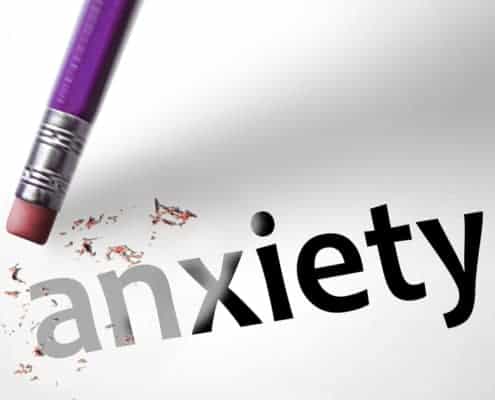Anxiety can be a very overwhelming experience and can affect different aspects of a person’s life. It’s important to remember that anxiety is a natural response to stress and perceived danger, but when it becomes excessive and interferes with daily functioning, it may be an anxiety disorder. Seeking professional help, such as therapy, or in some cases medication, can be effective in managing anxiety and reducing its impact on daily life.
The good news is that you are not alone and anxiety is a treatable condition. Through anxiety therapy, you can learn techniques to manage and reduce your symptoms. It can also be helpful to learn about the root causes of your anxiety and work through them with a therapist. We will guide you through this self-exploration in a way that does not cause you to re-live challenging experiences from your past.
How to Identify Anxiety
Anxiety is a natural response that helps you avoid danger. However, for some people, their body responds to various situations as if there is a physical threat, even when there is none. Physical symptoms of anxiety are designed to motivate a person to fight, flee, or freeze. Similarly, cognitive symptoms of anxiety are trying to help you notice and respond to real or perceived threats. Read about the symptoms of anxiety and let us know if you’d like to get started on managing any anxiety you may be experiencing.
Physical Symptoms of Anxiety
What your body feels and does
- Fast, pounding heart
- Rapid breathing
- Increased blood pressure
- Sweating
- A sense of impending doom (this often feels ‘physical’. . . like a stone in your gut, or bats in your stomach . . . not just butterflies)
- Trembling (this can feel like your insides are shaky, or that your hands/arms, legs/feet are trembling)
Cognitive Symptoms of Anxiety
What your mind thinks and does
- Thoughts of impending doom
- Excessive worry about what others may think of you
- Excessive concern about health and well-being
- A racing mind, often creating insomnia
- Difficulty concentrating and making decisions (analysis paralysis)
- Depressive thoughts
- Aggressive thoughts/behaviors. Irritability
What is the difference between nervousness and anxiety?
While often used interchangeably, nervousness and anxiety have some important differences. Nervousness is typically more thought-driven and goes away once the triggering situation is resolved. Anxiety, on the other hand, has a stronger physical component and can persist for a longer time. Nervousness may seem reasonable, like being nervous before a public speaking engagement. Anxiety, however, can seem irrational, with physical symptoms arising for no apparent reason. It is possible to manage both with the help of breathing and thought techniques.
How is anxiety trying to help me?
Anxiety serves as an alert system that warns us of potential danger. When anxiety is triggered, it sends oxygen and nutrients to the muscles and triggers the fight, flight, or freeze response of the sympathetic nervous system. This heightened response also makes our senses more acute, allowing us to assess the situation more accurately. While anxiety is useful in protecting us from danger, it can also be problematic when it activates when there is no real threat.
Are there different types of anxiety?
Yes, there are many types of anxiety, such as social anxiety, performance anxiety, romantic anxiety, test anxiety, and various phobias. Genetics can play a role in anxiety and some individuals may naturally live in a higher state of alertness than others. Mindfulness-based cognitive therapy, meditation, exercise, and massage can be effective in managing anxiety.
Can medication help with anxiety?
Medication can be an option for managing anxiety, but counseling and therapy are often more effective. Some anti-anxiety medications are highly addictive and can be challenging to stop taking. It is best to speak with a healthcare provider to discuss the best course of treatment for managing anxiety.
Anxiety Resources
National Institute of Mental Health – An overview of anxiety types, symptoms and treatment
Psychology Today – Information on Anxiety from a leading source of psychological treatment providers
National Suicide Prevention LifeLine Live Chat – 1-800-273-8255 is the 24/7 hotline
(512) 472-HELP – 24/7 Texas Crisis Line
Read about how to manage anxiety: Anxiety Articles
Jonathan F. Anderson, LPC-s has worked in the helping profession since he started college in 1990. After completing his Bachelor’s degree at the University of Texas, Austin in 1994, he attended the highly-regarded University of Minnesota to earn his Master’s degree in 1997. He is a Licensed Professional Counselor and is recognized as a Board Approved Supervisor by the State of Texas Board of Examiners of Professional Counselors. Jonathan has completed Level-2 of the Gottman Method of Couples Counseling, and in 1998 received training by the International Critical Incident Stress Foundation in Advanced Critical Incident Stress Management & Debriefing. To learn more about Jonathan’s practice, click here: Jonathan F. Anderson, LPC-s.










